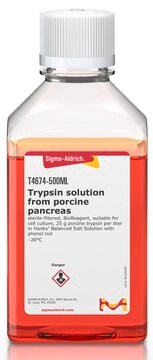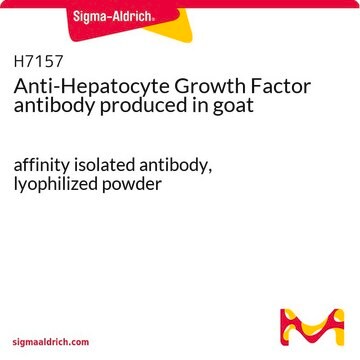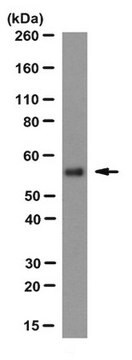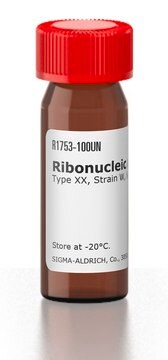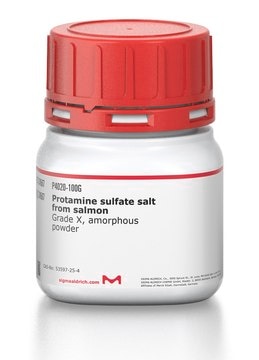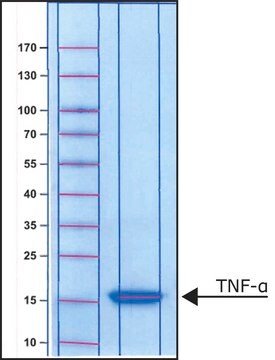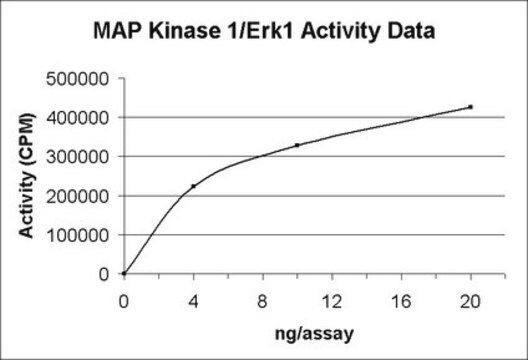Kluczowe dokumenty
H0652
Anti-Hepatocyte Growth Factor antibody produced in goat
IgG fraction of antiserum, lyophilized powder
Synonim(y):
Anti-HGF
About This Item
Polecane produkty
pochodzenie biologiczne
goat
Poziom jakości
białko sprzężone
unconjugated
forma przeciwciała
IgG fraction of antiserum
rodzaj przeciwciała
primary antibodies
klon
polyclonal
Formularz
lyophilized powder
reaktywność gatunkowa
human
metody
neutralization: suitable
western blot: suitable
numer dostępu UniProt
temp. przechowywania
−20°C
docelowa modyfikacja potranslacyjna
unmodified
informacje o genach
human ... HGF(3082)
Szukasz podobnych produktów? Odwiedź Przewodnik dotyczący porównywania produktów
Opis ogólny
Monoclonal Anti-Hepatocyte Growth Factor recognizes human HGF.
Immunogen
Zastosowanie
Postać fizyczna
Uwaga dotycząca przygotowania
Oświadczenie o zrzeczeniu się odpowiedzialności
Nie możesz znaleźć właściwego produktu?
Wypróbuj nasz Narzędzie selektora produktów.
produkt powiązany
Kod klasy składowania
11 - Combustible Solids
Klasa zagrożenia wodnego (WGK)
WGK 2
Temperatura zapłonu (°F)
Not applicable
Temperatura zapłonu (°C)
Not applicable
Środki ochrony indywidualnej
Eyeshields, Gloves, type N95 (US)
Wybierz jedną z najnowszych wersji:
Masz już ten produkt?
Dokumenty związane z niedawno zakupionymi produktami zostały zamieszczone w Bibliotece dokumentów.
Nasz zespół naukowców ma doświadczenie we wszystkich obszarach badań, w tym w naukach przyrodniczych, materiałoznawstwie, syntezie chemicznej, chromatografii, analityce i wielu innych dziedzinach.
Skontaktuj się z zespołem ds. pomocy technicznej